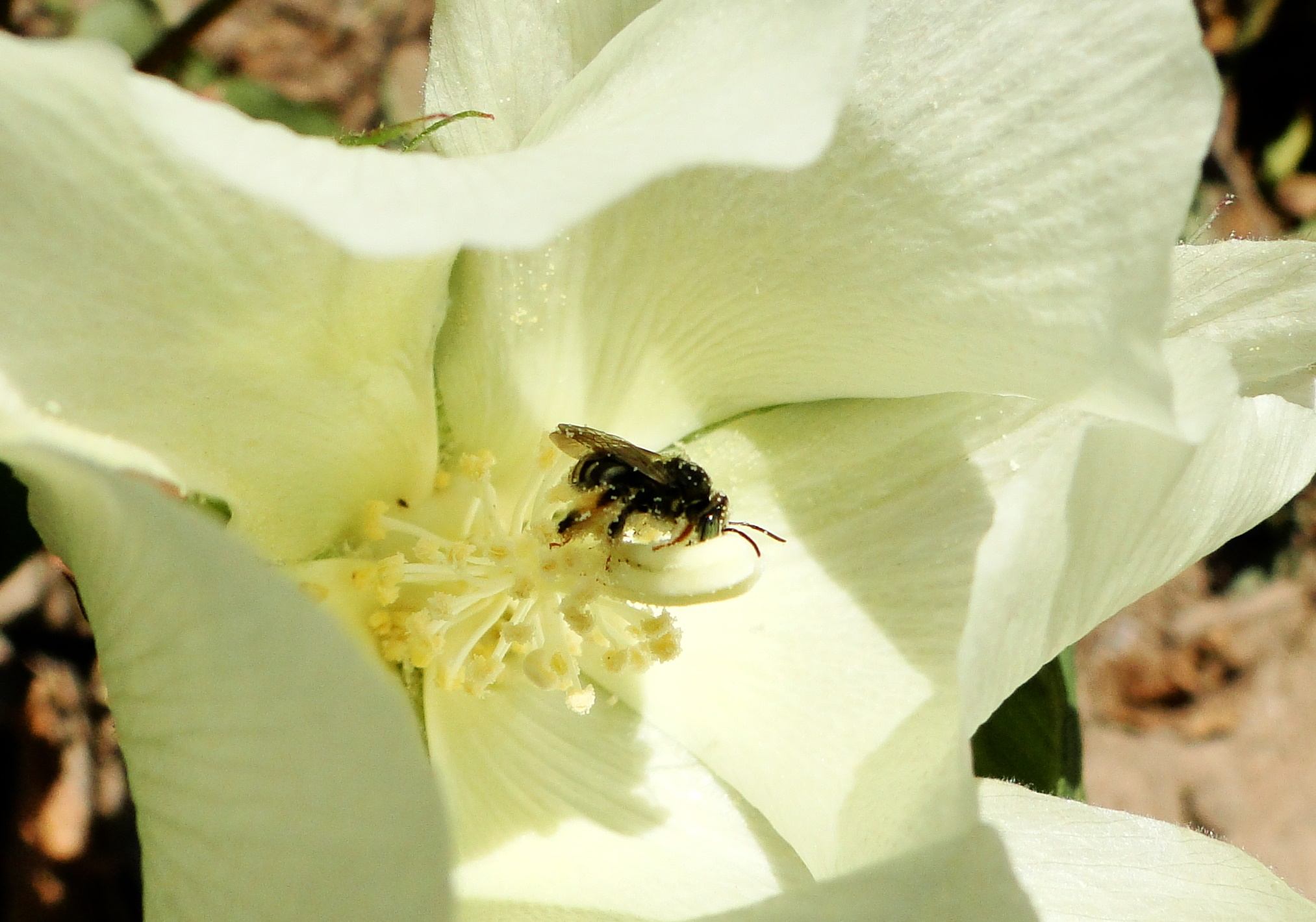Importance of bee pollination for cotton production in conventional and organic farms in Brazil
DOI:
https://doi.org/10.26786/1920-7603(2014)20Abstract
This study aimed to evaluate the importance of wild bee and feral honeybee visits for cotton production on conventional and organic farms. Experiments were conducted in Brazil, on a conventional cotton farm in Mato Grosso state in the Amazon biome and on an organic farm in Paraíba state in the Caatinga biome. On the conventional farm, bee assemblage and cotton production were measured near to and far from natural vegetation. Bee richness, fibre fraction, seed number and yield (Kg/ha) were higher by 57.14, 1.95, 17.77 and 18.44% respectively in plots near natural vegetation, but bee abundance did not vary with distance to natural vegetation. On the organic farm, because the cropping area is surrounded by natural vegetation, pollination deficit was evaluated using an exclusion experiment where cotton production of flowers bagged to prevent bee visitation (spontaneous self-pollination) was compared to production of flowers open to bee visitation (open pollination). Open pollinated flowers had higher average boll weight, fibre weight and seed number. Although cotton is not directly dependent on bee pollination, bees increased cotton production on the organic farm by more than 12% for fibre weight and over 17% for seed number. Our data confirm the importance of maintaining communities of pollinators on cotton farms, especially for organic production.

Downloads
Published
How to Cite
Issue
Section
License
Copyright (c) 2014 Viviane C. Pires, Fernando A. Silveira, Edison R. Sujii, Karoline R. S. Torezani, Wallyson A. Rodrigues, Fábio A. Albuquerque, Sandra M. M. Rodrigues, Antonieta N. Salomão, Carmen Sílvia Soares Pires

This work is licensed under a Creative Commons Attribution 4.0 International License.
JPE is an open access journal which means that all content is freely available without charge to the user or his/her institution.
Authors who publish with this journal agree to the following terms:
1) Authors retain copyright and grant the journal right of first publication with the work simultaneously licensed under a Creative Commons Attribution License that allows others to share the work with an acknowledgement of the work's authorship and initial publication in this journal.
2) Authors are able to enter into separate, additional contractual arrangements for the non-exclusive distribution of the journal's published version of the work (e.g., post it to an institutional repository or publish it in a book), with an acknowledgement of its initial publication in this journal.
3) Authors are permitted and encouraged to post their work online (e.g., in institutional repositories or on their website) prior to and during the submission process, as it can lead to productive exchanges, as well as earlier and greater citation of published work (See The Effect of Open Access).
To assure a broader targeted audience, content will be included into databases (such as EBSCO) and directories (such as DOAJ).











